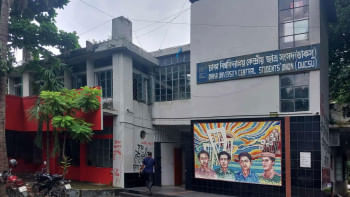‘Curbing arms flow to Myanmar junta key to Rohingya repatriation’

Tom Andrew, UN special rapporteur on the situation of human rights in Myanmar, today highlighted concrete international efforts to curb weapons flow to Myanmar's military as a step toward facilitating the repatriation of Rohingya refugees.
He cited Singapore's investigation into the transfer of military materials, which reduced weapons imports to Myanmar's military by nearly one-third by the rest of the world, demonstrating that coordinated action by member states can produce tangible results.
Speaking at an international conference titled, "Stakeholders' Dialogue: Takeaways to the High-Level Conference on Rohingya Situation", in Cox's Bazar, Andrew stressed that while the UN provides a vital platform to lay out facts and truths, the success of interventions depends on the political will and engagement of member states.
"While a global arms embargo by the UN Security Council may not be immediately achievable, member states can act independently when they receive verified information," he said.
Andrew described how his report revealed that hundreds of millions of dollars' worth of weapons materials were being funnelled through Singapore to Myanmar's military. Singapore launched an investigation, supported by the UN rapporteur, leading to a 90 percent reduction in such exports.
He said that similar actions by other nations collectively resulted in a one-third reduction in weapons reaching Myanmar's military.
He also expressed his gratitude to the Rohingya community for their resilience and active advocacy, particularly recognising community leaders for their persistent efforts to uphold human rights, dignity, and quality of life.
Andrew praised Bangladesh for providing refuge to Rohingya refugees during the 2017 crisis, stating that the country's swift humanitarian response likely saved countless lives.
"The crisis facing the Rohingya is an invisible crisis within an invisible crisis," he said, urging targeted visibility to engage those who can influence change and contribute to solutions.
Highlighting the conditions for successful repatriation, he emphasised that refugees must have access to healthcare, nutrition, education, and vocational skills to ensure sustainable livelihoods upon return.

 For all latest news, follow The Daily Star's Google News channel.
For all latest news, follow The Daily Star's Google News channel. 




Comments